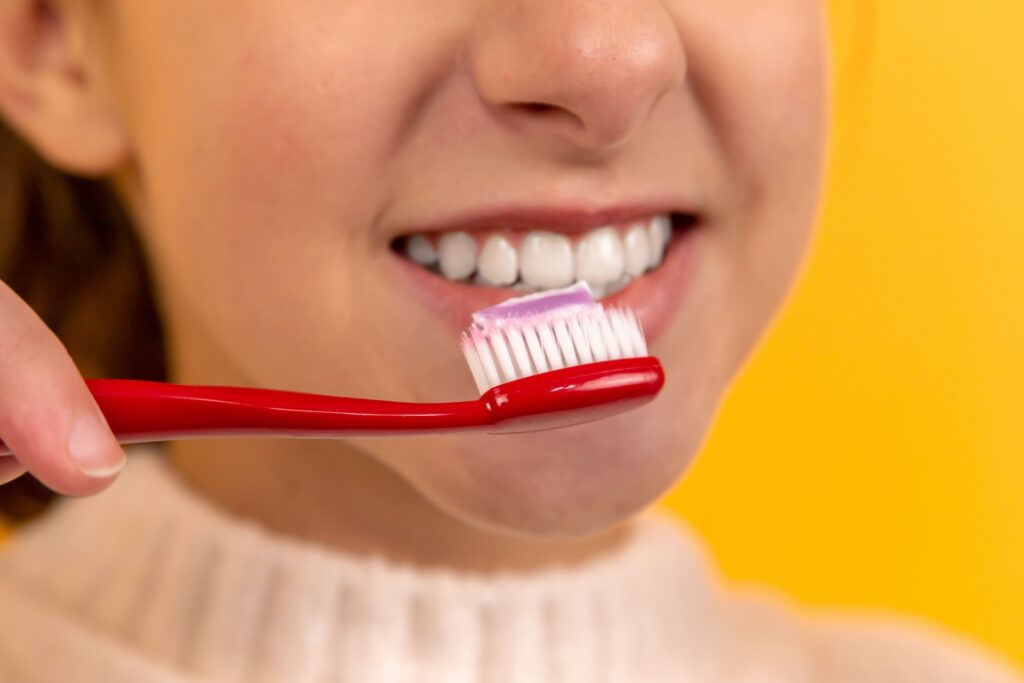At Sree Venkateswara Dental Clinics, with our extensive experience in treating various oral health conditions, one issue that we often encounter in our practice is ‘tooth sensitivity’. Many individuals suffer from the discomfort and pain associated with sensitive teeth, which can significantly impact their daily lives. In this article, we will shed light on the common causes of tooth sensitivity and provide valuable tips for managing and preventing this dental concern.

Understanding Tooth Sensitivity
Tooth sensitivity, also known as dentin hypersensitivity, is characterized by a sharp, often sudden pain or discomfort in response to certain stimuli. These triggers can include hot or cold foods and beverages, sweet or sour items, and even cold air. This condition occurs when the protective enamel on the outer surface of the tooth is compromised, exposing the sensitive inner layers of dentin and nerve endings.
Common Causes of Tooth Sensitivity
Tooth sensitivity can stem from various factors, and identifying the root cause is crucial for effective management. Here are some of the most common causes:
- Worn Tooth Enamel: Over time, tooth enamel can become worn down due to aggressive brushing, tooth grinding (bruxism), or the consumption of highly acidic foods and beverages.
- Tooth Decay: Cavities or dental caries can erode the enamel and expose the inner layers of the tooth, leading to sensitivity.
- Gum Recession: Receding gums can expose the tooth’s roots, which are not protected by enamel, making them vulnerable to sensitivity.
- Tooth Whitening Products: Some individuals may experience temporary sensitivity after using tooth whitening products or undergoing professional teeth whitening procedures. This is mostly temporary and will soon go away with time.
- Cracked or Chipped Teeth: Damage to the tooth structure can create pathways for sensitivity triggers to reach the nerve endings.
- Dental Procedures: Following certain dental treatments like fillings, crowns, or orthodontic adjustments, some individuals may experience temporary tooth sensitivity. Again this is a temporary condition and will soon go away once the patient adjusts to the dental procedure.
- Acidic Diet: Frequent consumption of acidic foods and beverages can contribute to enamel erosion and tooth sensitivity.
Managing and Preventing Tooth Sensitivity
Whether you’re already experiencing tooth sensitivity or aiming to prevent it, there are practical steps you can take to safeguard your oral health:
- Gentle Oral Care: Use a soft-bristled toothbrush and practice gentle brushing techniques to minimize enamel wear. Whether you’re managing or preventing sensitivity, brushing too aggressively can exacerbate the issue.
- Dietary Choices: Maintain a balanced diet rich in calcium to support strong teeth. Additionally, limit acidic foods and beverages, as excessive acidity can erode enamel, contributing to sensitivity in both cases.
- Fluoride Treatments: These can strengthen tooth enamel, making your teeth less susceptible to sensitivity and offering relief for those already experiencing it.
- Mouthguards for Bruxism or Teeth Clenching: If you grind your teeth, consider getting a custom-made mouthguard from your dentist. It serves as a protective barrier, preventing further enamel damage and reducing sensitivity while also acting as a preventive measure.
- Addressing Gum Recession: Seek guidance from your dentist on treatments to address gum recession. These treatments can protect exposed tooth roots, reducing sensitivity in existing cases and preventing it from developing.
- Crowns and Bridges: Your dentist may recommend dental crowns and bridges to address issues like chipped or broken teeth, ensuring that further damage is prevented, and the tooth’s lifespan is extended.
- Regular Dental Check-ups: Routine dental visits are essential for identifying and addressing issues like gum recession, chipped teeth, cavities or fracture lines on teeth that may lead to sensitivity. This proactive approach is vital for both managing and preventing tooth sensitivity.
By adopting these practices, you can effectively manage tooth sensitivity if you’re already experiencing it, while also taking proactive steps to prevent it from becoming a recurring issue in the future. At Sree Venkateswara Dental Clinics, we provide personalized guidance and treatment options to address your specific needs and concerns related to tooth sensitivity. So, if you feel that you are suffering from sensitive teeth, call us to book an appointment for your next dental check-up.
